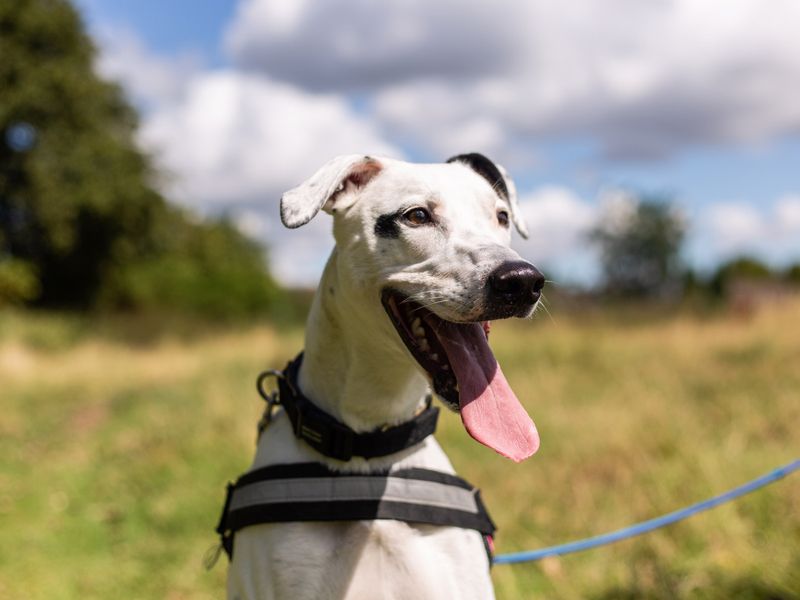Livestock worrying
How to keep your dog under control around cows, sheep and other farmed animals.

Chasing is a normal dog behaviour, whatever their breed, age, or size. So, dog owners have a responsibility to keep their dog under control around all farmed animals – like cows, sheep, pigs, goats, horses, donkeys and llamas – for everyone’s wellbeing.
This can be done by keeping dogs on leads and close to their owners whenever farmed animals are nearby or within seeing, hearing or smelling distance.
It’s important that farmed animals never feel threatened. ‘Worrying’ livestock isn’t only about chasing or attacking. It can be simply about knowing that a dog is nearby.
If farmed animals feel threatened, they can panic, hurt themselves and abort their pregnancies. Dog owners must be responsible and considerate.
Safety measures you can take
There are a few things you can do to minimise the risk your dog will worry farmed animals.
If you live near farmed animals
If you live in an area with farmed animals nearby, make sure the boundary of your property is secure to stop your dog from escaping.
Preparation for walks
Make sure your dog’s collar, harness and lead are fully functioning and fit for purpose before going on any walk. Always keep your dog’s tag and microchip details up to date.
You should also keep your dog’s worming treatment up to date and always pick up after your dog, as parasites can be passed to other animals through faeces. Ask your vet if you need advice on worming treatment.
Get prepared before you go on a countryside walk. Check public footpath routes for places where farmed animals are likely to be present so you can avoid these routes.
Areas to look out for include farmland, grazing areas like moorland, mountainsides, heaths, downs and some forests.
Training
Ensure your dog learns to come back when called and pays attention to you, regardless of any distractions. It’s essential that you can call your dog back in an emergency. Even more so if you are likely to encounter other animals on your walks.
It’s important to get young puppies familiar with farmed animals if they’re going to be around them regularly. Do this gradually and considerately so that all the animals feel safe. Your puppy should always be on a lead and under control.
On walks
When on walks, watch out for signs of animals grazing. Avoid these areas and always keep your dog under close control. Dogs should never be allowed to roam unsupervised near farmed animals.
If you can’t avoid walking through a field with other animals, stay as far away from them as possible. Even if this means diverting from the designated footpath and walking around the edge of the field.
If any animals approach you and your dog, keep moving away at a normal pace, calmly and quietly. If the animals start to run towards you and your dog at speed, then dropping their lead may be the safest option to let your dog get away. But do everything you can to avoid ever being in this situation.
Always pick up after your dog and dispose of it in a bin far away from any farmed animals. Diseases transmitted through dog faeces can be fatal to animals like sheep.
Need more help?
Our online Dog School can help dogs learn vital skills like recall and calm lead walking:
If you’re concerned about your dog’s behaviour, speak to your vet. They can rule out any health concerns.



